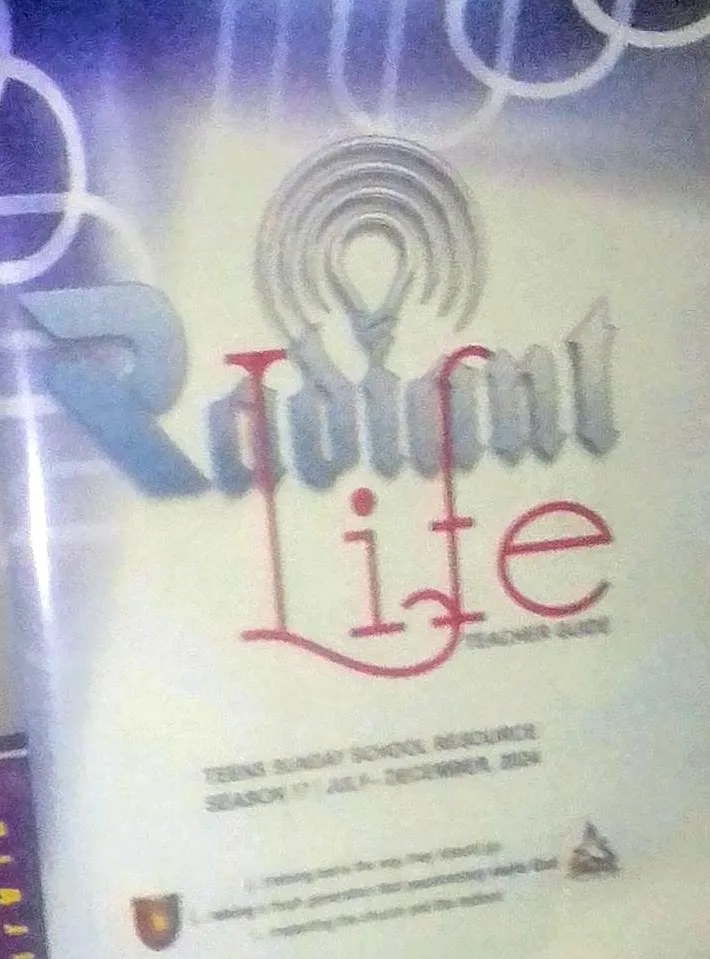INITIATION:
Historically, modern secular society has based most of its beliefs on science and reason. Religious ideas that can’t be proven are often dismissed. But over the past few years, a new worldview has taken root as well. Today’s teens are increasingly interested in exploring spirituality. But most of them are not necessarily searching for the God of the Bible, nor the kind of exclusive truth the Bible teaches. Instead, they’re willing to accept all beliefs and religions as equally valid and true, which is actually a philosophy that is reinforced by crusaders for tolerance and inclusivity. So far as truth goes, people are encouraged, especially in the West, to determine their own brand based on their own experience. Little wonder, all the confusions they’re engulfed in, trying to redefine male and female human genders. This is sometimes called “postmodernism.” This type of modern thought can be found virtually everywhere in the West; and it’s subtly creeping into our spaces in the tertiary institutions, media, and some churches. If not checked, it will become increasingly common in the days ahead to encounter “Christian” teens who accept the notion that many “sincere” expressions of faith represent various ways to get to the same “god.” Those who buy into this idea may struggle with having a desire for a deep, personal relationship with Christ, and they may not recognize the need for spreading His message of truth and life. When Jesus walked the earth, He made it clear that He is the only way to eternal life. It’s crucial that your students understand what the Bible teaches on this matter. As their teacher, you have the privilege of communicating Christ’s truth and pointing your teens toward the only One who can rescue them from the consequences of sin.
UNIT 5:
ONE WAY
BIBLE TEXT:
Matt 26.63-65; John 1:1,14,18; 8:23-24; Acts 4:10-12; Rom 7:18-19,24; 2 Cor 5:18-19; Eph 2:8-9; 1 Tim 2:5; Titus 3:4-6
SUBJECT:
THE ONLY WAY
KEY VERSE:
Jesus answered, “I am the way and the truth and the life. >No one comes to the Father except through me.” (John 14:6 NIV).
MAIN LESSON DISCOURSE
Explain to students…
WHAT’S THE BIG IDEA?
Jesus Christ provided the only way to reach God and receive spiritual Salvation.
WHY DOES IT MATTER?
As societies are becoming increasingly pluralistic spiritually, many are questioning and rejecting Christ’s exclusive claims.
HOW DO I LIVE IT?
Acknowledge that Jesus is the only way, surrender your life to His control, and reach out to others who do not know Him.
TEACHER'S HINT:
Over the next three weeks, the studies will go into greater detail on each of the three aspects of Jesus’ claim in John 14:6. This study will deal with the fact that Jesus is the ONLY WAY.
It will explore the spiritually pluralistic tendencies in many modern societies which resist the assertion that one religion is exclusively right.
While next week’s session will cover Jesus’ claims of being the ONLY TRUTH. It will explore moral pluralism, which rejects the notion of absolute truth.
The unit’s final two sessions will highlight Jesus as the only true way to eternal LIFE with God. It will answer the question of why Jesus had to provide that life.
>>STUDY OVERVIEW:
Explain today’s study as...
• That the exclusive claims of Christianity are based on Christ’s own words.
• Why all religious beliefs can’t be true at the same time.
• How Christianity differs from other religions.
>>INFORM AND DISCUSS
A). CHRIST’S CLAIMS:
>>Guide:
Explain that Christians are often accused of being narrow minded because of their beliefs, especially the assertion that Jesus is the only way to get to God. But the exclusive claims of Christianity aren’t based on personal beliefs or bias. They’re Jesus’ own words as recorded in the Bible.
Read or have a volunteer read John 14:6. What does this passage say to you? Does it leave any room for debate about how to get to God? Why or why not?
[Guide: Explain that those who resist the claim that there is only one way to God are resisting Jesus Himself. His claims are backed up with action and by other accounts throughout the Bible.]Read or have several volunteers read the following passages and respond to the corresponding questions:
• John 1:1,14,18. What does this passage reveal about Jesus?
[Hint: He is God. He came directly from the Father and reveals Him.]
• John 8:23-24. What does Jesus claim about Himself? [Hint: Unless you believe He is who He claims to be, you will die in your sins.]
• Acts 4:10-12 What claim does the apostle Peter make about spiritual salvation? [Hint: Salvation comes only through Jesus Christ.]
• 2 Corinthians 18-19 What did Jesus do for us? Hint: He served as the means by which God reconciled people to Himself.]
• 1 Tim 2:5 What is Jesus able to do for us that no one else can? [Hint: He is the only mediator between God and people - i.e., we can access God only through a relationship with Christ.]
• Matt 26:63-65 What was the “crime” of which Jesus was accused and for which He was crucified? [Hint: People accused Him of blasphemy for claiming to be the Son of God.]
- Why can’t a person simply believe that Jesus was a good person or a great teacher but not God’s Son?
[Hint: If Jesus lied about being God’s Son, He pulled off the greatest deception in history and would not be considered a good person. If He were crazy or disillusioned, He would not have been the profound wise and practical teacher that He was.]
>>Guide:
Explain that there are really only three ways in which a person could view Jesus. He was either a deceiver, He was insane, or He was exactly who He says He is: the Son of God. When it comes to eternal matters, you must follow the One who is alive and has authority to direct our lives. That’s not Muhammed, Buddha, Confucius, or any other human religious leader. These men have died, but Jesus rose from the grave - a fact that powerfully authenticates His authority and claims.
B). CONFLICTS AND CONTRADICTIONS:
- Ask students to describe ways that teens might respond to the questions “Who is God?” or “How would you describe God?” [Note: Answers may vary.]
>>Guide:
Explain that as much as people’s responses might vary, there are those who would concede that all the responses are right - if that’s what people truly believe. In other words, “god” is whatever works for you. Sadly, a lot of people today would agree with that statement.
What problems or issues arise when people follow whatever philosophy or belief they desire?
[Hint: When people follow their own beliefs, they have no way of determining right from wrong. Those who choose human ways over God’s way will lose out on eternal life.]What can happen when Christians begin to accept the notion that many expressions of faith represent various ways to get to the same “god”?
[Hint: Such people would wrongly assume that most religions are basically the same and essentially do the same things Christianity does. Consequently, it clouds their desire for a personal relationship with Christ and discourages them from being evangelistic about their faith.
- How would you respond to someone who says most religions are talking the same thing in different ways or from different perspectives?
[Guide: Remind students the problem is assuming that all people pursue or experience the same “god.” All religions can’t be addressing the same thing or be true at the same time. Too many of their teaching are completely incompatible with or opposite from one another.]
C). RELIGION VS RELATIONSHIP:
>>Teacher Hint:
Most religions acknowledge some degree of human depravity and the existence of good and evil. Many recognize a vast separation between people and what they consider “god.” This is the issue with which most beliefs try to deal. But depraved and imperfect people cannot attain goodness on their own. It can only happen through a total change of our nature. Only our Creator could provide for such a change.
What would you say are the main differences between Christianity and other religions?
[Guide: Explain that Christianity is the only religion where God saves people instead of people trying to save themselves. It’s exclusive, but it doesn’t discriminate or leave anyone out when it comes to offering salvation.]Read or have volunteers read Eph 2:8-9; Titus 3:4-6. Why is it significant that people can’t save themselves? [Guide: Explain that even good works can’t save. Thankfully, we don’t have to earn our way to God. Jesus came to earth to save people. All we have to do is accept that fact and turn our lives over to Him.]
>>Note:
Our problem isn’t a matter of not knowing what we should do. Our problem is lacking the power and ability to do what we know is moral, good, honest, and right. Thankfully, Christ offers forgiveness as a free gift and His power to live as we should. He gives us His life so we can start over. That’s the distinction between Christianity and other religions.
INSPIRE THEM:
Remind students “The Basic Message’ of this study. Point out the Big Idea behind the study; WHY it matters; and HOW we can live the lesson learned.
>>Invitation Option:
Explain that because of Jesus’ sacrifice, the only thing we have to do for salvation is surrender to God’s care and control - to give up our old lives in exchange for the new life He offers.
While surrendering control may be the most difficult part for most people, there’s freedom in giving up the frustration of our own attempts to reach or satisfy God. Jesus has already provided the way for us. Offer opportunity to and pray with all who want to make Jesus the Forgiver of their sin and the Leader of their lives.
>>Teacher Hint:
Ask Yourself...
- Do students understand that Christianity’s exclusive claims are based on Jesus’ own words as recorded in the Bible?
- Can they explain why all religions can’t be equally true and valid?
- Are they willing to present these truths to others in a loving and gracious manner?
>>DAILY DEW DROPS:
MONDAY:
No Other Name - Acts 4:12
TUESDAY:
The Sure Refuge - John 3:36
WEDNESDAY: Matter of Life or Death - John 8:24
THURSDAY:
Eternal Life Is In Christ - 1 John 5:11-12 Col 3:5.
FRIDAY:
If You Be In Christ... - 2 Corinthians 5:17
SATURDAY:
The Source of Eternal Salvation - Hebrews 5:8-9.
DISCLAIMER:
The original production and publication of this extracts belong to Sunday School Department of Assemblies of God Nigeria, as shown on the front page. We teach in the church and social media available.

